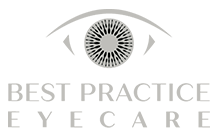Eye Health Tips For Over 50s

It’s easy to take our eyes for granted, but a 2018 Australian Institute Health & Welfare Report found that vision disorders affected 93% of people aged 65 and over.
As we age, the risks of developing various eye diseases and conditions increase —but the good news is that there are some preventative measures you can take to reduce your risk.
Learning how to take care of your eyes can make all the difference. Here are some of our top tips to keep your eyes healthy now and in the future:
1. Have Regular Eye Tests
In the early stages, many eye diseases can only be detected through a comprehensive eye examination with an eye care specialist. Cataracts and glaucoma are examples of conditions that are often discovered by eye health professionals during routine eye exams. The sooner these diseases are identified; the sooner treatment can begin, thereby reducing the risk of permanent damage.
A yearly eye exam also provides an opportunity to identify any health issues or medications that could impact vision. An eye exam will check the following:
- Visual acuity test to measure the ability to see fine detail
- Condition of the eye including the cornea, retina, optic nerve, and lens
- Eye movement and focusing ability
- Refractive errors
- Eye pressure
2. Eat A Healthy Balanced Diet
When it comes to protecting your vision, what you eat may affect what you see. According to Dr. Ivana Kim, Associate Professor of Ophthalmology at Harvard Medical School, certain vitamins and minerals found in food may play a role in preventing two common causes of vision problems: cataracts—cloudy areas in the lens of the eye—and age-related macular degeneration – a condition that causes vision loss in the macula. “While there is no definite proof, some studies suggest that eating a diet rich in certain nutrients may help,” says Dr. Kim.
Nutrients that are thought to boost eye health include, selenium, lutein, zinc, beta carotene, and vitamins A, C, and E. These nutrients can be found in healthy foods like green leafy vegetables, fruits, dairy, nuts, seafood and lean meats.
3. Exercise Regularly
Not only can regular exercise keep you slim and lift your mood, but a study cited by the American Academy of Ophthalmology suggests that exercise may also guard against eye damage. This could help stave off macular degeneration and eye conditions such as glaucoma and diabetic retinopathy. Exercise also helps to reduce your risk of developing high blood pressure, high cholesterol, and diabetes, which can all have a negative effect on your eye health and vision.
4. Wear Sunglasses
Ultraviolet light from the sun may contribute to the development of cataracts according to the Mayo Clinic. However, most of the time cataracts are just a result of your eyes aging naturally.
Always remember to wear sunglasses designed to block both UVA and UVB rays when you’re outside in the harsh Queensland sun. When it comes to choosing sunglasses, quality doesn’t have to mean expensive. Many lower-priced sunglasses offer UV protection, which should be designated on the label.
5. Quit Smoking
As well as being harmful to your whole body, smoking can increase your chances of developing an eye disease in later life. Smoking can cause vision loss by increasing the risk of age-related macular degeneration, cataracts, glaucoma, and diabetic retinopathy. Quitting smoking significantly lowers your risk.
6. Limit Digital Eye Strain
Many of us spend a large part of the day staring at our smart phones, computer and TV screens. All this screen time can lead to eye redness, eye strain, dry eyes and headache. To reduce symptoms try following the follow the 20-10-20 rule; every 20 minutes look 10 meters away for 20 seconds. This allows eyes to refocus.
It’s also helpful to use anti-glare screen guards, place computer screens 10cm below eye level, take frequent rest breaks and make a conscious effort to blink frequently.
7. Know Your Family History
Some eye problems have a family link and can be passed through generations. Glaucoma and age-related macular degeneration (AMD) are two examples of conditions that can be inherited. As such, people with a family history of eye conditions such as glaucoma and AMD should have regular eye tests to detect eye disease early.
If you’re diagnosed with an eye condition, encourage your parents, children and siblings to have regular eye tests. The earlier a problem is picked up, the better it can be treated. In Australia, 90% of vision loss is preventable or treatable.
Taking steps to preserve your vision now could be very beneficial to your eye heath in the long run.
Best Practice Eyecare is a leading ophthalmologist, eye surgeon and eye care specialist on the Sunshine Coast. We are based in the beautiful coastal suburb of Golden Beach and provide an eyecare service of the highest standard with a relaxed, friendly patient-focused approach.
We service patients across all areas of the Sunshine Coast including Caloundra, Kawana, Mooloolaba, and Maroochydore. Our practice is led by surgeon Dr. Michael Karpa who treats a wide range of eye conditions such as cataracts, glaucoma, macular degeneration, dry eyes, and flashes & floaters.

Best Practice Eyecare Ophthalmologists
Based on the Sunshine Coast, we provide ophthalmologist, eye care and surgical services of the highest standard. We treat and manage a wide range of eye conditions including cataracts, glaucoma and macular degeneration and more.

